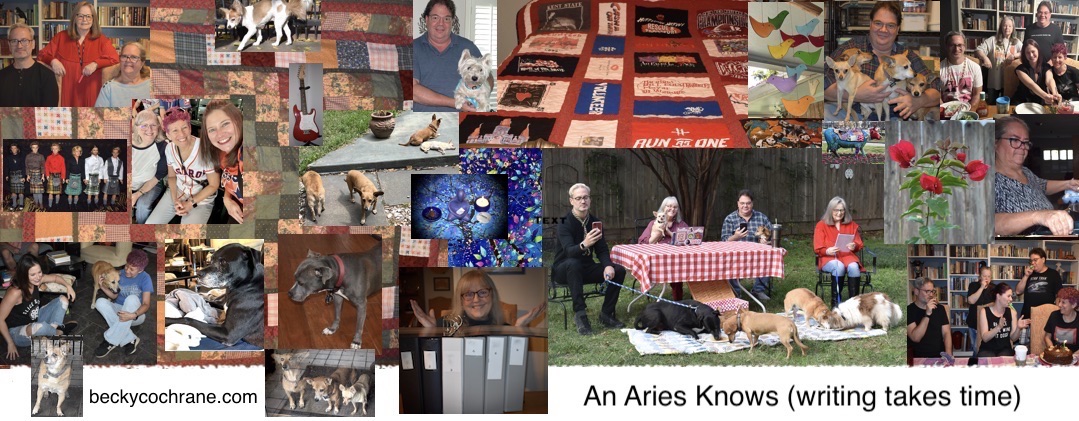As I’ve watched the ENDA debates play out across the blogosphere, I don’t know whether to laugh or cry. This is the one fight that should never be a fight. ALL employees should be protected from discrimination in the workplace. Period.
No matter what language it includes, when ENDA gets to Bush, he’s going to veto it. Period.
An unwinnable fight is still worth the effort when it’s for justice and equality under the law. Sooner or later, when we stop letting ENDA’s opponents–and shockingly, its supporters–divide and conquer us, we’ll get the workplace protection that over 86 percent of Fortune 500 companies, seventeen states and the District of Columbia, and 88 percent of Americans polled concede is fair.
In light of that debate, I’m glad that Joe.My.God. made me aware of this letter that Julian Bond wrote in the context of an entirely different news story. It’s an eloquent perspective of why a struggle for equality is everyone’s fight.
Marsha Ellison, President
Fort Lauderdale, Florida NAACP
1409 NW 6th Street Fort Lauderdale, FL 33311
Dear President Ellison:
Thank you for your courageous stand against homophobia in your community.
I am astounded by those who believe hostility toward homosexuals and the denial of civil rights to them is not a civil rights issue.
That’s why when I am asked, “Are Gay Rights Civil Rights?” my answer is always, “Of course they are.”
“Civil rights” are positive legal prerogatives – the right to equal treatment before the law. These are rights shared by all – there is no one in the United States who does not – or should not – share in these rights.
Gay and lesbian rights are not “special rights” in any way. It isn’t “special” to be free from discrimination – it is an ordinary, universal entitlement of citizenship. The right not to be discriminated against is a common-place claim we can expect to enjoy under our laws and our founding document, the Constitution. That many had to struggle to gain these rights makes them precious – it does not make them special, and it does not reserve them only for me or restrict them from others.
When others gain these rights, my rights are not reduced in any way. Luckily, “civil rights” are a win/win game; the more civil rights are won by others, the stronger the army defending my rights becomes. My rights are not diluted when my neighbor enjoys protection from the law – he or she becomes my ally in defending the rights we all share.
For some, comparisons between the African-American civil rights movement and the movement for gay and lesbian rights seem to diminish the long black historical struggle with all its suffering, sacrifices and endless toil. However, people of color ought to be flattered that our movement has provided so much inspiration for others, that it has been so widely imitated, and that our tactics, methods, heroines and heroes, even our songs, have been appropriated by or serve as models for others.
No parallel between movements for rights is exact. African-Americans are the only Americans who were enslaved for more than two centuries, and people of color carry the badge of who we are on our faces. But we are far from the only people suffering discrimination – sadly, so do many others. They deserve the laws’ protections and civil rights, too.
Sexual disposition parallels race – I was born black and had no choice. I couldn’t and wouldn’t change if I could. Like race, our sexuality isn’t a preference – it is immutable, unchangeable, and the Constitution protects us all against prejudices and discrimination based on immutable differences.
Many gays and lesbians, along with Jews, worked side by side with me in the ’60s civil rights movement. Am I to now tell them “thanks” for risking life and limb helping me win my rights – but they are excluded because of a condition of their birth? That they cannot share now in the victories they helped to win? That having accepted and embraced them as partners in a common struggle, I can now turn my back on them and deny them the rights they helped me win, that I enjoy because of them?
Not a chance.
Opponents of homosexuality have the right to their opinion: they do not have the right to use their beliefs to denigrate and marginalize others. A people who suffered bigotry in the past and suffer from it today ought to be the last people in the world to tolerate bigotry towards others.
Best wishes,
(Signed)
Julian Bond, Chairman
NAACP National Board of Directors

I am going to copy that letter and hand it out to my classes tomorrow. They can read it and talk about how important it is to write well, to express a person’s thoughts, clearly, and with poignancy to the subject. This was well done.
Bravo for this post.
Thank heavens that people like him exist to awe, inspire, and instruct the rest of us.
Jeffrey R.